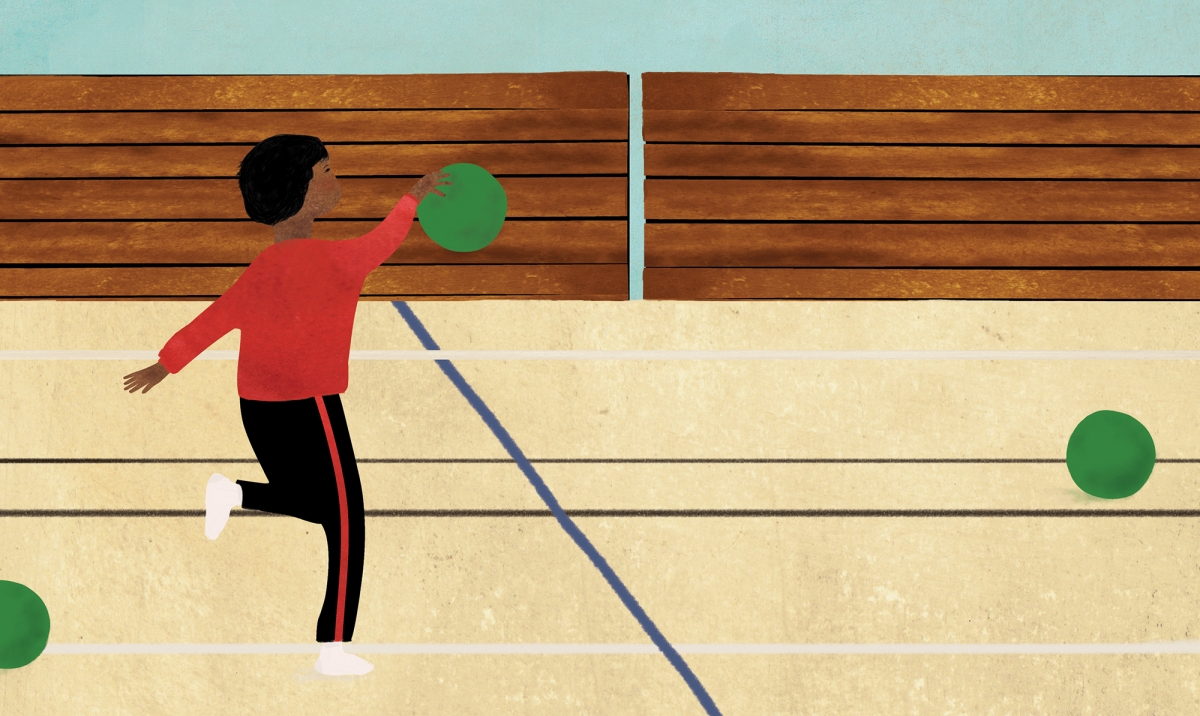
Indigenous Culture and Sport
Norbert Mercredi remembers stepping onto the frozen river in Grand Rapids as a young boy, eager to play on the ice with his friends, a curved stick firm in his hands.
For shinny, a traditional Indigenous game, players would carve their sticks from birch trees, explains 69-year-old Mercredi [BPE/79, CertEd/80], while re-enacting how he maneuvered around his opponents. It’s what his ancestors enjoyed too, often in moccasins, long before hockey skates.
Impromptu games like this—and tag, and balancing on spruce tree branches—formed Mercredi’s early physical education in the remote Manitoba community.
“It involved us being interactive. Relationships developed and we had very strong connections with each other as young people growing up in Grand Rapids,” says Mercredi, a longtime phys-ed teacher and coach.
Harnessing the power of sport to empower and build connections—not only to others, but also to culture and the land—is so important for youth but not always within reach, he notes. Today, there’s a void in many First Nations communities in Manitoba, with educators often having to teach gym class and other recreation programming without specialized training.
To meet the need for quality, culturally responsive curriculum, the UM alumnus helped launch Sport, Physical Activity and Recreation in the Community, or SPARC. The certificate program—its first students funded through a donation to the Front and Centre campaign—partners the Faculty of Kinesiology and Recreation Management with the Manitoba First Nations Education Resource Centre, where Mercredi is a facilitator.
The groundbreaking initiative is rooted in Indigenous teachings and invites residents from northern regions to take university and professional development courses at UM and Camp Manitou, on everything from movement principles to activity planning. They learn holistic tools to deliver programming that inspires youth in their communities to become actively engaged in sport.
SPARC’s inaugural cohort had a 100 per cent graduation rate. Every morning before class, Mercredi prepares a sacred fire and leads a prayer. “Right away, we all became one family,” says Katie Antsanen, a graduate from Lac Brochet.
They learn traditional games like foxtails, where players toss or dodge a whirling stocking stuffed with rice. Grad Jessica Beardy brought this back to children in Garden Hill First Nation. “Once they know what to do, they can teach their friends so it goes even farther,” she says.
Mercredi adds, “It gives you the feeling of pride in knowing that these are games that your ancestors may have played.”
He calls SPARC’s creation “ê pawâtamak”—akin to a dream, in Cree.
An Indigenous tradition involves setting aside a small plate of food to honour those in the Spirit World. A SPARC student suggested creating a plate for the late J. Derek Riley [BComm/43, CA/49, LLD/17] in gratitude. Riley’s $1-million gift to support Indigenous achievement—including mentorship and educational and cultural programs for northern Indigenous youth—enabled the first cohort of SPARC. A second began the program in early 2020.






